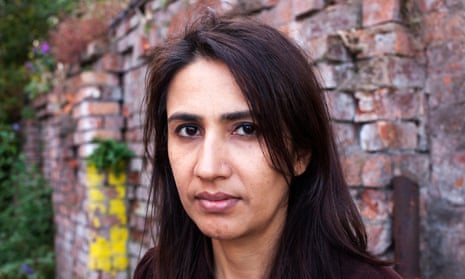A women’s rights organisation has written to Jeremy Corbyn calling for an inquiry into allegations female Muslims were discriminated against and blocked from seeking office by male Labour councillors.
Muslim Women’s Network UK (MWNUK) urged the Labour leader to investigate “systematic misogyny displayed by significant numbers of Muslim male local councillors”.
The organisation claimed that the problem had been an “open secret” within Labour and accused the party of being “complicit at the highest levels”.
The letter suggested that Muslim men within Labour had been allowed to operate under the “patriarchal ‘biradari’ system”.
MWNUK’s chair, Shaista Gohir, accepted that the issue was not confined to Labour and she has also written to David Cameron urging him to launch an independent inquiry into the barriers to political participation faced by black and ethnic minority women.
But she said “from our experience, Muslim women are most affected by Labour Muslim male councillors due to the latter’s number in certain towns and cities”.
In her letter to Corbyn, she wrote: “As this is an open secret and has been going on for decades, we can only assume that the Labour party has been complicit at the highest levels.
“How do men who do not want Muslim women to be empowered or have a voice remain in power unless the Labour party allows it?
“It appears that over decades senior Labour politicians have deliberately turned a blind eye to the treatment of Muslim women because votes have been more important to them than women’s rights.”
She claimed that “able, knowledgeable and independent-minded Muslim women have been undermined, sabotaged and blocked from becoming councillors”, with many selection “deals” stitched up behind closed doors.
“We would like the Labour party to hold an independent inquiry into how Muslim women are being marginalised by local Labour politicians,” she said.
Muslim women told BBC2’s Newsnight of the obstacles they had faced trying to stand for office.
Optician Fozia Parveen claims her efforts to become a Labour councillor in Birmingham in 2007-8 were scuppered by men within the party: “At the time, I was aware of a smear campaign against me, they said that I was having an affair with one of the existing councillors. I was quite taken aback. People were turning up at my family home trying to intimidate my mum.”
She claimed Muslim men who were members of the local Labour party were behind the efforts to prevent her from standing.
Shazia Bashir was the first choice for Labour in a seat in Peterborough in 2007 but claimed that she was pressured “because I didn’t have my father’s consent and support, I had to step down”, adding: “I was pressured into stepping down.”
A Labour spokesman said: “The Labour party’s selection procedures include strong positive action procedures such as all-women shortlists and rules to ensure women are selected in winnable council seats.
“We have the best record of any party in selecting women and BAME candidates, and we will continue to do all that we can to make sure candidates are representative of the communities they seek to represent.
“The Labour party has a fair, democratic and robust procedure for selecting council candidates. Local Labour party members select their local candidates within the party’s rules and guidelines. Those wishing to become Labour councillors are interviewed by an independent assessment team and unsuccessful candidates have a right of appeal to the regional party board.”
